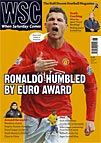 Gavin Willacy compares his experiences as a young player with those of kids today, and finds an obsession with emulating the boys at the top
Gavin Willacy compares his experiences as a young player with those of kids today, and finds an obsession with emulating the boys at the top
Early this season, Radio 5 Live’s morning phone-in got all in a lather about a youth league in Huntingdonshire that was unhappy at the FA banning them from publishing under-eight league tables in their local paper. The story subsequently ran in several other national media outlets.
The FA had only ended the practice of league tables for under-eights and nines, rather than them throughout the youth game. Likewise, they have gradually raised the age at which teams move from seven-a-side to 11-a-side. But still there was a splenetic reaction from some parents.
The FA’s aim was to dilute the effect of winning and losing, and instead encourage learning through fun – if results were not compiled, they were irrelevant. Yet the Sunday-morning league I played in during the Eighties, where my three nephews now play, still accepts results for under-eights and nines. There are just no tables.
Already, though, these boys are obsessed with scorelines and league tables. Much of that is to do with feeling grown-up, of course: “Man Utd are in a league, so are we.” This wasn’t necessary in my days with the mighty Marshalswick Warriors – not because we lost to almost everyone anyway, but because there was no organised football below under-tens. Just like at school, no one played in teams until they were nine, at least, unless they were outstanding.
My nephews were surprised when I told them this. How on earth did we learn the game without a coach shouting at us? By kicking a ball around in the playground or park every day, I explained.
Sir Trevor Brooking would like to see a return to those ways, a concentration on skill acquisition not competition. Rumours that the FA’s director of football development is on borrowed time at Soho Square will come as no surprise to anyone who, like me, witnessed his guest spot at the British Colleges Sport annual conference at Loughborough last summer. Brooking gave an honest appraisal of the state of the game; not a passionate rant, more the words of a defeated man, past despairing. The clubs do what they want; the FA stand by, helplessly.
Whatever the FA’s ambitions, bureaucracy reigns over enjoyment. Children can’t even move between teams within their own club without being officially transferred. The rules would force a team to play short-handed while a clubmate of the same age watches. Brooking would know the feeling.
England’s dismal display at the recent Rugby League World Cup led one former international to conclude that all our domestic stars, so embarrassingly exposed by the world’s elite, had ever done since they first stepped on to a pitch was react to an adult telling them what to do. No wonder they can’t think for themselves when facing challenging situations, he surmised. The same can be said for our footballers.
Even the best Dutch kids are asked to play in every different position so they can experience each scenario on the pitch before they specialise in their mid-teens. Children here get given a position in a 4-4-2 when they are still at primary school, then play there every week for years. Change position or formation and they are totally lost.
It is the coaches who are the main problem, not the competitive dads. I went to see one nephew play the other Sunday. There was flair and imagination on show despite the relatively low standard, but not much fun. The opposition’s coach shouted fierce, critical comments at his 11-year-olds throughout the first half. Eavesdropping on my nephew’s coach during half-time was even more depressing. Apparently his team were not tough enough, not good enough, needed to be harder, stronger, and to stop letting him down. They were drawing at the time and had played by far the better football in awful conditions in a field with no dressing rooms or other facilities. His shivering boys were totally bereft of enthusiasm and confidence by the end of his rant. If they weren’t wondering what they were doing there, they should have been.
His second-half instructions were almost identical to those of his opposite number: negative, verging on aggressive, inconsistent, vague, unnecessary. And this is an FA level one-qualified coach of a team of middle-class boys at an FA charter standard club from an affluent village.
I see the products of this culture in my classroom. The most depressing conversation each year with my 16-year-old footballers is the one in which they scoff at the prospect of playing the game for fun in front of a couple of dozen people for little or no financial recompense. Few have yet admitted that their careers will likely involve actually paying to play on muddy playing fields on Sunday mornings. Some have lost the thrill, the fun and the camaraderie of football already. And that’s surely because they have been shouted at every time they stepped on to a field since they were eight years old or told how brilliant they are every time they’ve stepped off it. Or both.
From WSC 263 January 2009